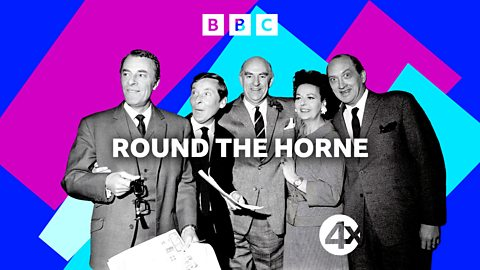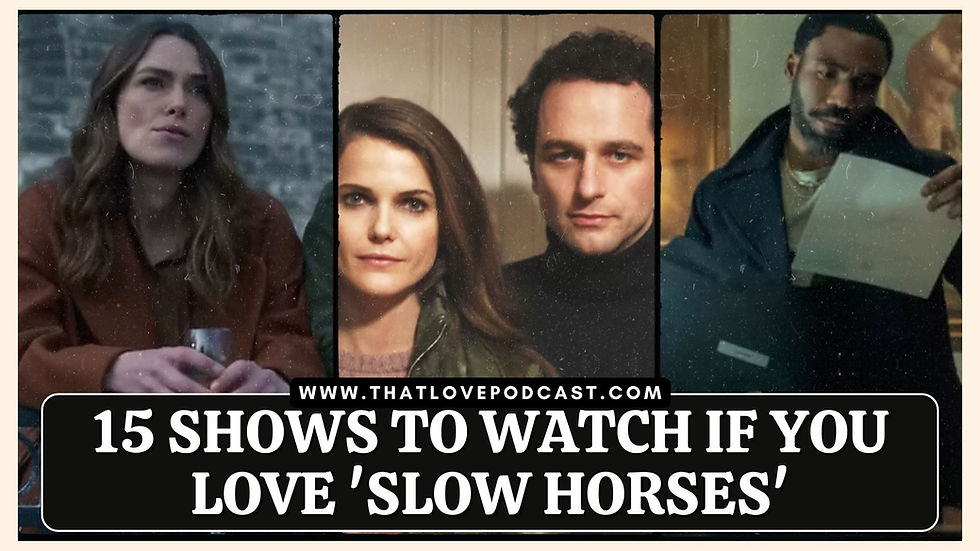7 Iconic BBC Audio Dramas Everyone Should Hear at Least Once
- Joao Nsita
- Jun 27, 2025
- 11 min read

Meta Description: Discover the most iconic BBC audio dramas that defined radio entertainment. From Hitchhiker's Guide to Under Milk Wood, explore timeless classics and modern favorites that showcase the golden age of BBC radio drama.
The British Broadcasting Corporation has been home to some of the most innovative and captivating audio dramas in broadcasting history. For over a century, BBC Radio has transformed the medium into an art form, creating immersive worlds that exist purely in sound. These productions have not only entertained millions but have also launched careers, adapted beloved literature, and pushed the boundaries of what radio drama could achieve.
Whether you're new to audio drama or a seasoned listener looking to explore the BBC's greatest hits, this collection represents the essential listening experience that showcases why BBC radio drama remains the gold standard for audio storytelling worldwide.

1. The Hitchhiker's Guide to the Galaxy (1978)
Douglas Adams' masterpiece began life as a BBC Radio 4 comedy series in 1978, and it's arguably the most influential audio drama of the modern era. Long before it became a beloved book series, television show, or Hollywood film, Hitchhiker's Guide existed as a groundbreaking radio comedy that revolutionized science fiction storytelling.
The original six-part series follows the misadventures of Arthur Dent, an ordinary Englishman who escapes Earth's destruction thanks to his alien friend Ford Prefect. What made this production extraordinary was Adams' brilliant writing combined with innovative sound design and a stellar cast including Simon Jones as Arthur Dent and the incomparable Peter Jones as the voice of The Book itself.
The series pioneered the use of electronic music and sound effects in radio drama, creating an otherworldly atmosphere that was both surreal and surprisingly believable. The deadpan humor, philosophical insights, and absurdist comedy established a template that countless sci-fi comedies would follow. The show's success led to multiple sequels, international broadcasts, and sparked the entire multimedia franchise we know today.

2. Under Milk Wood (1954)
Dylan Thomas's poetic masterpiece "Under Milk Wood" represents one of the most celebrated achievements in BBC radio history. First broadcast in 1954 starring Richard Burton, this "play for voices" offers an intimate portrait of a fictional Welsh village called Llareggub over the course of a single day.
Thomas conceived the work specifically for radio, understanding that the medium's unique properties could bring his lyrical language to life in ways that stage or screen could never match. The production captures the dreams, desires, and daily lives of the village's eccentric inhabitants through a tapestry of interconnected monologues and dialogues.
Burton's narration as the First Voice provides the poetic backbone, while a full cast brings dozens of characters to vivid life. The production's genius lies in its ability to create an entire community through pure sound – the listener becomes an invisible observer wandering through the village, eavesdropping on private thoughts and public interactions.
The 1963 BBC version, which included previously omitted passages, became the definitive recording and remains a testament to radio drama's power to create intimate, deeply personal experiences that resonate across generations.

3. The Archers (1951-present)
While many dismiss "The Archers" as merely a soap opera, this daily serial deserves recognition as one of BBC's most ambitious and enduring dramatic experiments. Running continuously since 1951, it holds the Guinness World Record as the longest-running radio soap opera, with over 20,000 episodes broadcast.
Originally created to educate farmers about agricultural practices, "The Archers" evolved into a sophisticated examination of rural British life, tackling everything from domestic violence and mental health to environmental issues and social change. The show's commitment to authenticity – consulting real agricultural experts and addressing contemporary issues – has made it a unique documentary of British social history.
What makes "The Archers" exceptional is its ability to create genuine emotional investment in its characters across multiple generations. Families have listened together for decades, following the Archer family and the village of Ambridge through births, deaths, marriages, and crises. The show's writers have crafted storylines that balance everyday realism with compelling drama, proving that radio can sustain complex, long-form narrative better than any other medium.

4. Sherlock Holmes (1989-1998)
The BBC's complete adaptation of Sir Arthur Conan Doyle's Sherlock Holmes stories, starring Clive Merrison as Holmes and Michael Williams as Dr. Watson, represents the most comprehensive and faithful radio adaptation of the canon ever produced. Across nearly a decade, the BBC dramatized every single Holmes story and novel, creating a definitive audio library of the world's most famous detective.
What distinguished this production was its meticulous attention to Victorian atmosphere and period detail. The sound design evoked gaslit London streets, the clip-clop of hansom cabs, and the fog-shrouded atmosphere of Doyle's original stories. Merrison's Holmes avoided the theatrical excess of many interpretations, presenting a brilliant but human detective whose deductive powers felt genuinely believable.
The series benefited from Bert Coules' masterful adaptations, which remained faithful to Doyle's plots while expanding the stories for radio. The chemistry between Merrison and Williams created one of the most convincing Holmes-Watson partnerships ever recorded, capturing both the friendship and professional respect between the two characters.
These adaptations proved that classic literature could find new life on radio, introducing Holmes to new generations while satisfying devoted fans of the original stories.

5. The Lord of the Rings (1981)
Before Peter Jackson's film trilogy, before animated adaptations, the BBC created the most successful dramatization of Tolkien's epic fantasy in their 1981 radio series. This 26-part adaptation, starring Ian Holm as Frodo Baggins, demonstrated radio drama's unique ability to bring fantasy worlds to life through sound alone.
The production's success lay in its understanding that radio drama could accomplish what film and television struggled with – creating a sense of vast, mythic scope while maintaining intimacy with individual characters. The sound design team created an entire world: the peaceful Shire, the menacing Mordor, the ethereal halls of Rivendell, all distinguished through carefully crafted acoustic environments.
Ian Holm's Frodo anchored the production with a performance that captured both the hobbit's initial innocence and his gradual transformation under the Ring's burden. The supporting cast, including Michael Hordern as Gandalf and Robert Stephens as Aragorn, brought depth and distinction to Tolkien's extensive character roster.
The adaptation proved that radio could handle complex fantasy narratives, inspiring later fantasy audio dramas and demonstrating the medium's power to engage listeners' imaginations in creating elaborate fictional worlds.

6. Round the Horne (1965-1968)
"Round the Horne" represents the pinnacle of BBC radio comedy, pushing the boundaries of what was acceptable on radio while delivering consistently brilliant entertainment. Starring Kenneth Horne alongside Kenneth Williams, Hugh Paddick, Betty Marsden, and others, the show combined wordplay, innuendo, and surreal humor in ways that influenced comedy for decades.
The show's most famous creation was Julian and Sandy, the camp theatrical duo played by Williams and Paddick, who used Polari (gay slang) to slip risqué content past BBC censors. These characters, along with others like Rambling Syd Rumpo and J. Peasemold Gruntfuttock, became cultural icons that transcended radio.
What made "Round the Horne" exceptional was its linguistic inventiveness. Writers Barry Took and Marty Feldman created elaborate verbal constructions, puns, and double entendres that rewarded careful listening while remaining accessible to casual audiences. The show's rapid-fire delivery and multiple recurring characters created a unique comedy universe that listeners eagerly returned to each week.
The program's influence extended far beyond radio, inspiring television comedies and establishing templates for character-based sketch shows that continue today.

7. War of the Worlds (Various BBC Adaptations)
While Orson Welles' 1938 American broadcast is more famous, the BBC's various adaptations of H.G. Wells' "The War of the Worlds" showcase the evolution of radio drama techniques and the story's enduring power. The BBC has produced multiple versions, each reflecting different eras of radio production and technological capabilities.
The BBC's approach to this classic science fiction story has consistently emphasized psychological realism over sensationalism. Rather than focusing solely on the spectacular aspects of Martian invasion, BBC adaptations have explored the human response to crisis, the breakdown of social order, and the individual's struggle for survival in an impossible situation.
These productions demonstrate radio drama's unique ability to create tension and atmosphere through sound design. The heat rays, tripod machines, and destruction of familiar landmarks become more terrifying when filtered through the listener's imagination rather than being explicitly shown.
The various BBC adaptations also showcase how radio drama has evolved technically, from the early days of live broadcasting to modern digital production, while maintaining the essential power of the original story to captivate and unsettle audiences.
Why These Dramas Are Great Listens
These seven productions represent different aspects of what makes BBC audio drama exceptional. They demonstrate the medium's unique strengths: the power of voice acting to create complex characters, the ability of sound design to build entire worlds, and radio's capacity to engage listeners' imaginations in ways that visual media cannot match.
Each production showcases different techniques and approaches. "Hitchhiker's Guide" uses comedy and innovative sound to create science fiction worlds, while "Under Milk Wood" employs poetic language to capture the essence of a community. "The Archers" proves that serialized storytelling can create deep emotional connections, while the Holmes adaptations show how classic literature can find new life on radio.
These dramas also represent different eras of BBC production, from the early experimental days of the 1950s through the golden age of the 1960s and 1970s to the more recent digital era. Listening to them provides insight into how radio drama has evolved while maintaining its essential character.
Most importantly, these productions demonstrate radio drama's accessibility. Unlike television or film, radio drama requires no visual attention, making it perfect for commuting, exercising, or relaxing. The listener becomes an active participant, using imagination to complete the world that sound and voice create.

Conclusion
The BBC's legacy in audio drama spans nearly a century of innovation, creativity, and storytelling excellence. These seven productions represent just a fraction of the Corporation's dramatic output, but they serve as an excellent introduction to the medium's possibilities and pleasures.
From the surreal comedy of "Hitchhiker's Guide" to the poetic beauty of "Under Milk Wood," from the long-form commitment of "The Archers" to the faithful adaptation of beloved literature, these dramas showcase radio's unique ability to create intimate, immersive experiences that live entirely in the realm of sound and imagination.
Whether you're discovering audio drama for the first time or returning to beloved classics, these productions offer timeless entertainment that rewards repeated listening. They remind us that in an increasingly visual world, the power of human voice, carefully crafted sound, and imaginative storytelling remains as compelling as ever.
The BBC continues to produce exceptional audio drama today, building on the foundation established by these classics while exploring new technologies and storytelling techniques. For anyone interested in understanding why radio drama remains a vital and vibrant art form, these seven productions provide the perfect starting point for a lifetime of listening pleasure.
Frequently Asked Questions
1. Where can I listen to these classic BBC audio dramas? Most of these productions are available through BBC Sounds, the Corporation's official streaming service. Many are also available on Audible, Spotify, and other audio platforms. Some older productions can be found in libraries or through legal archive services like Archive.org.
2. Do I need to listen to BBC audio dramas in any particular order? Most BBC productions are designed to be accessible to new listeners. While some series like "The Archers" have ongoing storylines, you can generally start with any episode. For complete series like "Hitchhiker's Guide" or "Lord of the Rings," starting from the beginning provides the best experience.
3. How long are typical BBC audio dramas? BBC audio dramas vary greatly in length. Daily serials like "The Archers" run about 15 minutes per episode, while complete adaptations like "Lord of the Rings" span many hours across multiple episodes. Most standalone dramas run 30-90 minutes.
4. Are BBC audio dramas suitable for all ages? This varies by production. Shows like "The Archers" and most classic adaptations are generally family-friendly, though they may deal with mature themes. Comedy series like "Round the Horne" contain adult humor and innuendo. The BBC typically provides content guidance for their productions.
5. What makes BBC audio dramas different from audiobooks? BBC audio dramas are fully produced with multiple voice actors, sound effects, and music, creating a cinematic experience for the ears. Audiobooks are typically single-narrator readings of existing books. BBC dramas are written specifically for radio or adapted with radio's unique properties in mind.
6. How has BBC audio drama production changed over the decades? Early BBC productions were recorded live with minimal editing, while modern productions use digital technology for sophisticated sound design and post-production. However, the focus on strong writing, excellent voice acting, and innovative use of sound remains constant.
7. Can I download BBC audio dramas for offline listening? BBC Sounds allows downloads of many productions for offline listening, though availability varies by program and region. Commercial platforms like Audible also offer downloadable versions of many BBC productions.
8. Are there modern BBC audio dramas worth exploring beyond these classics? Absolutely! The BBC continues to produce exceptional audio drama. Recent acclaimed productions include "Passenger List," "The Cipher," and ongoing series like "Doctor Who" audio adventures. BBC Radio 4's "Drama of the Week" showcases contemporary works.
9. How do I know if a BBC audio drama is complete or ongoing? BBC Sounds and other platforms typically indicate whether a series is complete or ongoing. Historical productions like those on this list are complete, while shows like "The Archers" continue to produce new episodes daily.
10. What equipment do I need to enjoy BBC audio dramas? Any device capable of playing audio will work – smartphones, computers, tablets, or traditional radios. Good headphones or speakers enhance the experience, as BBC productions often use stereo effects and subtle sound design that benefits from quality audio equipment.
Are you a fan of insightful movie reviews and pop culture analysis? Look no further than That Love Podcast's collection of thought-provoking articles. From superhero blockbusters to indie gems, their reviews offer a fresh perspective on the latest cinematic experiences. Dive into these engaging pieces:
Deadpool & Wolverine: A Chaotic, Self-Aware Romp Through the Marvel Multiverse: Explore their take on this highly anticipated Marvel team-up, promising chaos and meta-humor.
Furiosa: A Mad Max Saga Review - The Adrenaline-Fueled Masterpiece That Will Leave You Breathless: Discover why this Mad Max prequel is being hailed as an action-packed masterpiece.
Hit Man: Richard Linklater's Wildly Entertaining Genre Mashup Is a Cinematic Revelation: Learn about this unexpected gem from acclaimed director Richard Linklater.
The Proposal Review: A Refreshingly Charming Romantic Comedy Gem: Revisit this classic rom-com through the podcast's unique lens.
Welcome to our curated list of essential websites for comic book enthusiasts! Whether you're a Marvel fan, DC devotee, or just a lover of comic book culture, these resources provide the latest news, access to thousands of digital comics, and in-depth discussions on your favorite superheroes and graphic novels. Explore the official hubs for Marvel and DC, dive into community-driven discussions, or browse extensive comic collections across a variety of genres. Here's your gateway to the world of comics, from indie to mainstream:
Marvel.com - The official site for Marvel, featuring the latest news, free comics, and access to the Marvel Unlimited service, which offers a digital library of over 25,000 comics. Marvel.
DC Universe Infinite - DC's own subscription service offering a huge collection of digital comics, with exclusive early access to new releases. DC Universe Infinite.
ComicBook.com - A top site for comic-related news, reviews, interviews, and updates, including coverage of comic-based movies and TV shows. ComicBook.com.
GoComics - A platform for reading classic and modern comic strips, including Peanuts, Calvin and Hobbes, and many more. GoComics.
ScreenRant - A popular entertainment website with extensive coverage of comic books, superhero movies, TV shows, and fan theories. ScreenRant.
Newsarama - A well-established website for comic book news, reviews, and community discussions about comics, sci-fi, and more. Newsarama.
Comic Book Resources (CBR) - A comprehensive website offering news, opinion pieces, and in-depth discussions of comic books, graphic novels, and related media. CBR.
The Mary Sue - A feminist perspective on geek culture, covering comics, superhero media, and other aspects of entertainment. The Mary Sue.
Bleeding Cool - A site for breaking news on comic books, with a focus on rumors, leaks, and insider information from both Marvel and DC. Bleeding Cool.
Comixology - A leading platform for digital comics, offering a wide variety of Marvel, DC, and indie comic books for purchase or subscription. Comixology.


























Comments